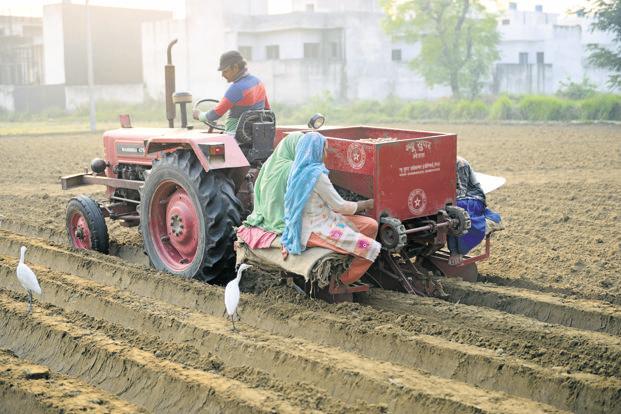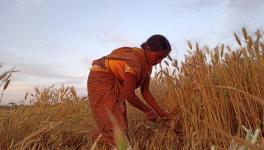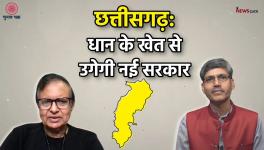Karnataka Assembly Passes Debt Relief Bill 2018 to Reduce Farmers’ Woes

Image Coutesy: Livemint
The Karnataka Legislative Assembly on February 13, 2019, passed the Debt Relief Bill, 2018, a year after the state cabinet had taken the ordinance route to reduce farmers’ debt. The bill now awaits the assent of the President and on availing the assent, the bill will be in effect for a year. According to a report in the Business Fortnight, “The bill proposes that any loans taken from non-institutional sources excluding non-banking finance corporations (NBFCs), stand null and void, and any pledged items such as gold and land documents, will have to be returned. However, the government is still not clear on the losses that will be borne by lenders.” The bill thus aims at easing the financial burden on landless labourers, small farmers and other poor sections.
According to a report in Livemint, the bill thus covers all those who were left out of the Rs. 45,000 crore farm loan waiver announced by the H D Kumaraswamy-led coalition government last year.
Also Read: Are Farmers of Karnataka Being Deceived by False Promises of the Government?
Most of the small farmers and landless labourers avail loans from the local money lenders and these loans are lent with higher rates of interests, sometimes up to 20 per cent. According to the Karnataka Money Lenders and Pawnbrokers Act 1961, a moneylender is an individual or an undivided Hindu family or a company or an incorporated body of individuals, who or which carries the business of money lending in the state. Debtors availing loans from these moneylenders fall into a vicious debt trap, as it becomes impossible for them to repay the principal amount. The moneylenders usually resort to extreme steps of public humiliation and unlawful methods and harass the defaulters of the debts. According to a report in the Deccan Herald, “While there is no official figure on total such loans availed, Karnataka has 8,274 pawnbrokers and 10,692 moneylenders registered in the state.”
However, under Karnataka Moneylenders’ Act, 1961, and Karnataka Pawnbrokers’ Act, 1961, charging higher interests is an offence. The passage of the Bill, will be a relief to all those who are in debt because of the current drought situation in the state.
Also Read: Karnataka Budget: Agriculture, Education and Health
The Vicious Debt Circle in the State
A study conducted by the Institute for Social and Economic Change (ISEC), Bengaluru in 2015 had shown that, “non-institutional loan was one of the causes of the farmers’ suicides and 85 per cent of the Karnataka households surveyed in the study identified crop loan as the most important reason behind the suicide committed by a family member of the household.”
The Karnataka Debt Relief Act was first floated in 1976 under the Devaraj Urs government. The Act read, “The problem of Urban and Rural indebtedness from sources other than Government and institutional agencies has assumed serious dimension in recent time. One of the factors responsible being the tightness in the money market. Exorbitant rates of interest are being charged and mal-practices are being indulged. Agriculturists with small holding, landless agricultural labourers and the weaker sections of the community have all been exploited. The State Government, thereof, considered it necessary to provide adequate relief to the said categories. This is consistent with the 20-point programme announced by the Prime Minister also. Hence, the Karnataka Debt Relief Ordinance, 1975, was issued declaring that debts owed by the aforesaid categories stood discharged.”
Also Read: Centre Reduces Funds for NRDWP in Drought-hit Karnataka, Has No Money for MGNREGS
The state of Karnataka has witnessed five years of consecutive drought. The losses incurred by the farmers in the last four years due to drought had made it impossible for them to repay their loans. The state is yet again facing a severe drought situation and there has been a severe crop loss in 100 out of 175 talukas. According to the statistics provided by the State Agriculture Department, 3,515 farmers were reported to have committed suicide from April 2013 to November 2017, which is a sharp increase from 1,125 cases of farmer suicides in the period April 2008 to April 2012. Out of the 3,515 suicide cases reported, 2,525 cases were due to drought and crop failure.
The Debt Relief Bill 2018, along with the Farm Loan Waiver Scheme of the coalition government if implemented and taken seriously, will be a great relief for all those indebted.
In its second budget for the fiscal year 2019-2020, on February 8, 2019, the CM said that the Farm Loan waiver scheme that his government had announced in its maiden budget on July 5, 2018, would continue. A total of Rs. 12,000 crore have been allocated for the scheme and Rs. 5,000 crore out of this has already been released.
Also Read: Drought in Karnataka: A Human-made Disaster
In its election manifesto, the Janata Dal (Secular) [JD(S)] had stated that the government would waive off all agriculture loans in a single go. This loan waiver scheme, however, proposes to waive off loans in phases and not on a one-time basis. In the current scheme, the CM had announced waivers amounting to Rs. 34,000 crore, while the total farm loans amount to around Rs. 1.20 lakh crore. The government had to reimburse Rs. 10,500 crore to banks for the loan waiver last year, and generated funds for the rest of the amount through an increase in taxes on fuel, electricity, motor vehicles and alcohol. In the second phase, an incentive of Rs. 25,000 per person had to be distributed to the 27.67 lakh farmers who repaid their loans on time ‘to prevent complaints that only defaulters have benefitted’.
The loan waiver scheme, even though not a long-term solution for the fuming agrarian crisis in the state, in the context of consecutive drought years in the state and increase in farmer suicides, came as a relief. The loan waiver scheme would also serve as a short-term relief to the drought hit farmers.
Get the latest reports & analysis with people's perspective on Protests, movements & deep analytical videos, discussions of the current affairs in your Telegram app. Subscribe to NewsClick's Telegram channel & get Real-Time updates on stories, as they get published on our website.
























